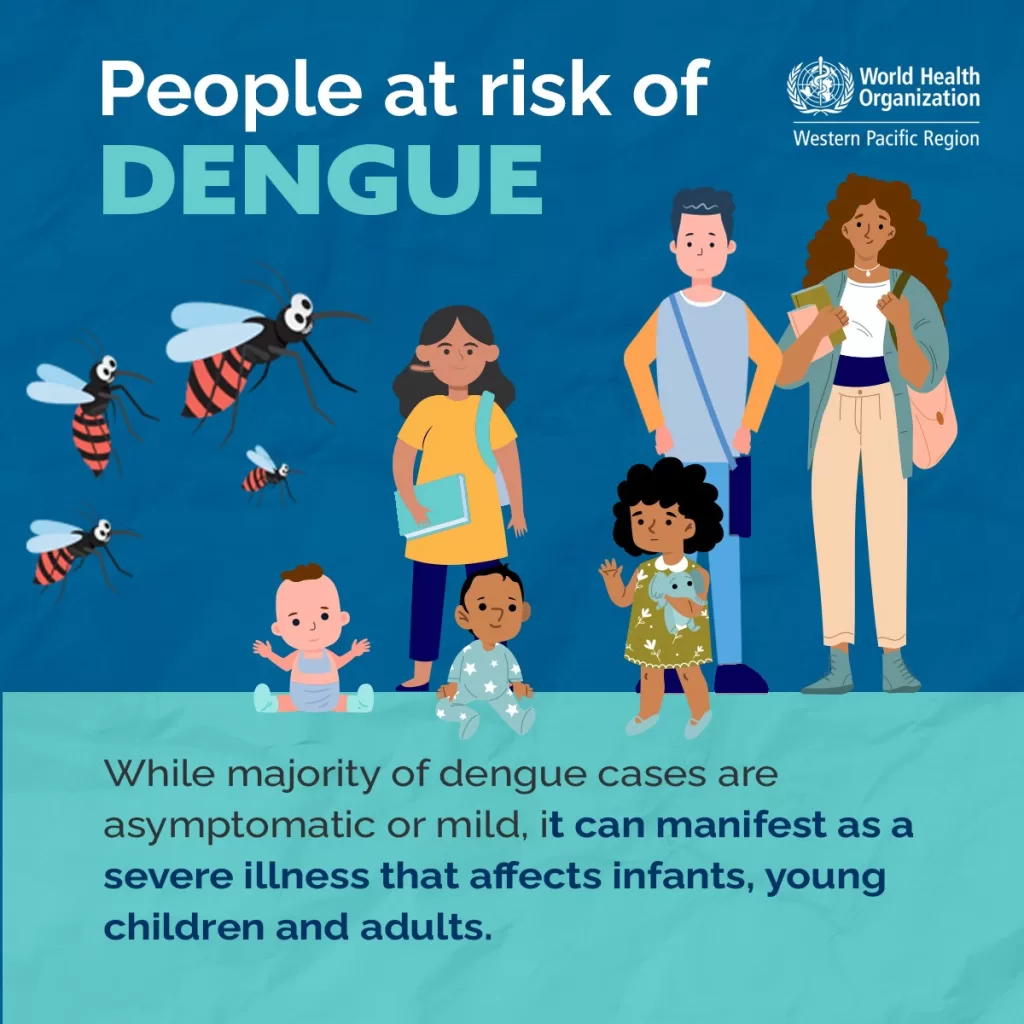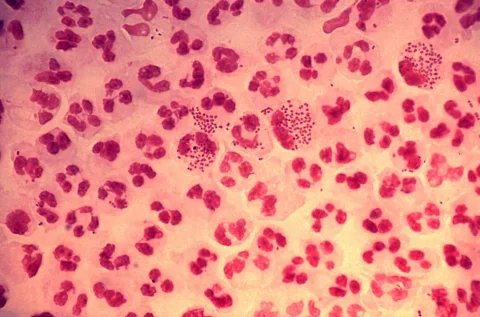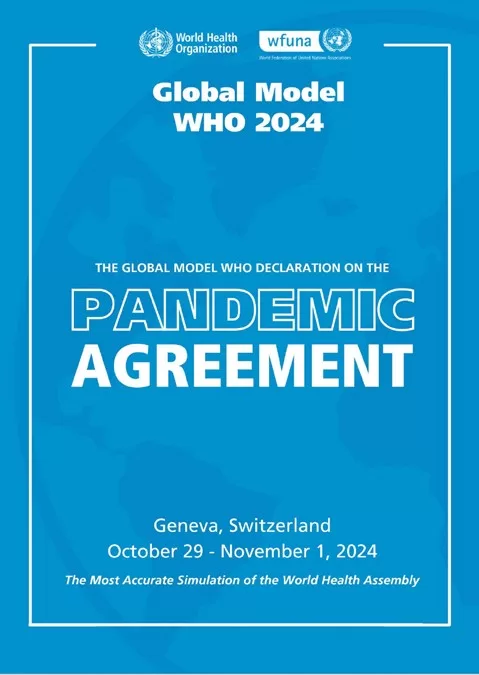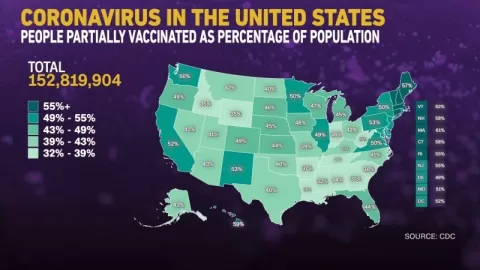Dengue risk for expatriates poses a significant concern, particularly for those residing in dengue-endemic regions like Thailand. These mosquito-borne diseases can lead to serious health issues, and expatriates may be unaware of their vulnerability to dengue exposure. With travel health becoming more critical in today’s globalized world, understanding the dynamics of DENV seropositivity among expatriates is essential. This unique demographic often has different risk factors and behaviors compared to local populations, which may influence the efficacy of dengue vaccination and preventative measures. Therefore, tailored public health strategies that cater specifically to expatriates are needed to mitigate their risk of contracting dengue.
The threat posed by dengue fever is an increasingly relevant issue for foreign residents in endemic regions, especially as they adapt to new climates and surroundings. It’s crucial to assess how their lifestyle choices—such as outdoor activities and health precautions—affect their exposure to dengue vectors. Furthermore, understanding the prevalence of various mosquito-borne illnesses can guide expatriates in making informed health decisions during their stay abroad. With growing concerns over travel health, public health initiatives must consider the distinct needs of expatriates regarding dengue prevention strategies, including potential vaccination options. Ultimately, fostering awareness of these risks can encourage expatriates to take proactive measures against dengue and other arboviruses.
Understanding Dengue Exposure for Expatriates
Dengue exposure poses a significant health risk for expatriates living in dengue-endemic regions such as Thailand. Unlike tourists, expatriates often spend extended periods in areas where the dengue virus is prevalent, increasing their likelihood of mosquito bites and subsequent infection. Research indicates that individuals living in these environments need to consider their local living conditions, public health resources, and personal behaviors that enhance or mitigate their risk. For expatriates, understanding the nuances of dengue exposure is crucial, as their experiences may differ markedly from those of transient travelers.
Moreover, the factors influencing dengue exposure for expatriates include cultural practices, the urban-rural divide, and the prevalence of mosquito-borne diseases. Expatriates may engage in outdoor activities and social gatherings that put them at greater risk; thus, awareness about peak mosquito seasons and preventative health measures—like using mosquito repellents and sleeping under nets—are vital in reducing exposure. Health professionals recommend that expatriates regularly assess their environment for potential dengue risk factors, such as standing water and clearance of breeding grounds, to better protect themselves.
The Importance of Dengue Vaccination for Long-Term Travelers
For expatriates, receiving a dengue vaccination can serve as a critical preventive measure against severe dengue infections. Vaccines targeting dengue viruses have been developed and can significantly lower the risk of hospitalization and health complications associated with the virus. However, vaccination guidelines may vary depending on the individual’s serostatus, travel plans, and overall health history. It is essential for expatriates to consult with travel health specialists, particularly in determining the appropriateness of the dengue vaccine based on their potential exposure and past infection history.
Additionally, the efficacy of the dengue vaccine is measured against varying serotypes of the virus, necessitating personalized health assessments prior to vaccination. Expatriates must be aware of their own DENV seropositivity status, as some vaccines may only be effective for those with a previous dengue infection. This highlights the importance of comprehensive health assessments and access to reliable serological testing, which can guide expatriates in making informed decisions about vaccination while living in high-risk areas.
Analyzing the Annual Force of Infection Among Expatriates
The annual force of infection (FOI) for expatriates living in dengue-endemic areas is significantly lower than that of local populations. A recent study indicates that it takes an average of 67.3 years for expatriates to achieve a 60% seropositivity rate, which contrasts starkly with local residents who face a much higher infection risk. Understanding the FOI is essential for devising health strategies for expatriates, as lower exposure levels suggest that preventive measures could be tailored specifically for their behaviors and lifestyles.
Also, this insight into the FOI can aid public health initiatives aimed at expatriates. Health authorities can use this information to promote awareness and preventative strategies that are effectively targeted to expatriates, such as advising on best practices for avoiding mosquito bites, especially in high-transmission areas. Furthermore, recognizing that expatriates have a different exposure profile enables health practitioners to advocate for personalized travel health recommendations that consider their unique living situations and patterns.
Dengue Risk Factors: A Closer Look at Expatriates
Examine the various risk factors contributing to dengue exposure among expatriates, and it’s evident that lifestyle choices and environments play a pivotal role. Factors such as daily time spent outdoors, the use of mosquito protection measures (repellents, nets), and living conditions all contribute to the likelihood of dengue transmission. Unlike short-term travelers, expatriates often develop routines that can inadvertently increase their exposure risk and thus require tailored advice for better dengue prevention.
Awareness of local dengue outbreaks and seasonal patterns is equally important for expatriates navigating the complexities of dengue risk. Expatriates residing in urban areas like Bangkok and Pattaya may encounter different exposure risks compared to those in rural settings. Ongoing education and updates about local transmission dynamics and public health recommendations should be part of an expatriate’s health strategy to mitigate these risks effectively.
Public Health Recommendations for Expatriates Living in Thailand
Given the unique exposure dynamics of expatriates in dengue-prone regions, public health recommendations should be specifically tailored to meet their needs. Prioritizing education on dengue transmission, especially regarding the importance of avoiding mosquito bites and recognizing symptoms of infection, can empower expatriates to take personal responsibility for their health. In tandem with preventive measures, increased access to healthcare services and vaccinations can further protect expatriates and contribute to lowering overall dengue incidence rates.
Additionally, collaboration between expatriates and local health authorities can create a robust network for sharing information on outbreaks and preventive measures. By fostering community engagement and encouraging expatriates to participate in awareness campaigns, the overall resilience against dengue in shared communities can be enhanced. Such public health strategies should focus on providing practical solutions while incorporating cultural considerations that resonate with expatriate lifestyles.
Evaluating the Efficacy of Dengue Prevention Programs
Assessing the efficacy of existing dengue prevention programs is crucial for ensuring that expatriates receive adequate protection in endemic areas. Programs aimed at minimizing mosquito populations and educating the community about dengue risk have shown positive results, yet the specific impact on expatriates remains under-evaluated. Research must focus on kickstarting initiatives that are notably inclusive of expatriate communities, thereby enabling them to benefit from local health interventions tailored to their specific environments.
Additionally, employ feedback from expatriates who have participated in these programs to refine strategies and enhance engagement. By establishing benchmarks for success and actively involving expatriates in the design of prevention programs, public health officials can ensure that the approaches are practical, culturally relevant, and effectively reduce the incidence of dengue exposure.
Travel Health Considerations for Expatriates in Endemic Regions
Expatriates must prioritize travel health considerations when relocating to or living in dengue-endemic areas. This includes not only preventive measures such as vaccinations and mosquito protection but also understanding their specific risk factors related to lifestyle and environment. Regular health check-ups and consultations with travel medicine specialists can provide expatriates with up-to-date information about the health landscape of their host country, including any concerning outbreaks of mosquito-borne diseases.
Moreover, expatriates should also be proactive in maintaining regular health screenings to monitor their immune response to dengue and other diseases endemic in the area. Such measures can significantly contribute to early detection and timely treatment, ultimately preventing the complications associated with severe dengue infections. By being informed and prepared, expatriates can navigate their health effectively while living abroad.
The Role of Community Awareness in Dengue Prevention
Community awareness plays a pivotal role in dengue prevention efforts, especially for expatriates who can sometimes feel disconnected from local health initiatives. Building a support system that educates both expatriates and local populations about dengue transmission, prevention strategies, and available health resources is vital. Initiatives like community workshops and informational campaigns can promote a culture of shared responsibility, where expatriates feel empowered to engage actively in preventive measures.
Enhancing community awareness not only benefits expatriates but also strengthens local responses to dengue outbreaks. Equipping expatriates with knowledge about local mosquito behaviors and seasonal vulnerability patterns can create a collaborative community effort to minimize mosquito breeding sites. This collective action fosters an environment that protects all residents, reinforcing health as a shared responsibility in dengue-endemic areas.
Future Directions for Research on Expatriate Health in Dengue Contexts
Future research directions should focus on understanding the unique health needs and experiences of expatriates concerning dengue. Analyzing the long-term immunity and exposure patterns of expatriates will provide insights that are critical for developing tailored health interventions. Studies could include diverse expatriate demographics and their specific lived experiences in various dengue-prone regions to create a nuanced understanding of vulnerability and risk factors associated with mosquito-borne diseases.
Moreover, increasing the focus on preventive strategies through ongoing research can support policy development that caters to expatriates across various countries. By promoting cross-border collaborative research efforts, insights gained can significantly shape public health policies globally and address the unique challenges expatriates face regarding dengue risk. Investing in this research will lead to enhanced protective measures and better health outcomes for expatriates living in endemic regions.
Frequently Asked Questions
What is the dengue risk for expatriates living in dengue-endemic areas?
Expatriates living in dengue-endemic areas, such as Thailand, experience a distinct dengue risk profile compared to local populations. Our research indicates a lower annual force of dengue virus (DENV) exposure, with estimates showing it takes about 67.3 years for 60% of expatriates to exhibit seropositivity. This suggests that expatriates may not be at as high a risk as local residents for severe dengue infections.
How does dengue exposure differ between expatriates and local populations?
Dengue exposure among expatriates is notably lower than that of local populations in endemic regions. Factors such as limited outdoor activities, the use of mosquito repellents, and controlled living environments contribute to this reduced risk. Understanding these differences is crucial for effective travel health recommendations.
Is there a dengue vaccination recommended for expatriates?
While there is a dengue vaccination available, its recommendation for expatriates depends on individual risk assessments and local epidemiological data. Given the unique dengue exposure profile of expatriates, vaccine guidelines may need to be tailored specifically for this group to ensure effective prevention of mosquito-borne diseases.
What preventive measures can expatriates take against dengue?
Expatriates can reduce their dengue risk by employing preventive measures such as using mosquito repellent, wearing protective clothing, utilizing bed nets, and ensuring living areas are mosquito-free with air conditioning. These strategies are essential for minimizing DENV exposure while residing in endemic regions.
What are the implications of DENV seropositivity for expatriates?
DENV seropositivity among expatriates indicates previous exposure to the virus. Understanding the seropositivity rates helps in assessing the overall dengue risk for this group, guiding public health recommendations and potential vaccination strategies to prevent severe complications from secondary infections.
What should expatriates know about travel health regarding dengue?
Expatriates should be well-informed about travel health concerning dengue risks, including the importance of preventive measures and the distinction in exposure compared to local populations. Staying updated on local dengue trends and engaging with healthcare providers for personalized advice can significantly enhance safety while abroad.
How does climate change impact dengue risk for expatriates?
Climate change potentially increases dengue risk for expatriates by expanding the habitats of mosquitoes and extending transmission seasons. As expatriates remain in these regions, they should be aware of changing conditions that could influence DENV exposure and take proactive measures to safeguard their health.
Can expatriates experience severe dengue infections?
Yes, expatriates can experience severe dengue infections, particularly upon secondary infection with a different DENV strain. It is crucial for expatriates to recognize their risk profile, stay informed about dengue transmission in their area, and seek immediate medical attention if symptoms arise.
What are some common symptoms of dengue that expatriates should watch for?
Expatriates should be vigilant for symptoms of dengue, which may include high fever, severe headache, pain behind the eyes, joint and muscle pain, rash, and mild bleeding. Early recognition and treatment are important to manage the disease effectively.
Why is it important for public health strategies to consider expatriates’ dengue exposure risks?
Public health strategies should consider expatriates’ dengue exposure risks because they display a unique profile distinct from locals and short-term travelers. Tailored strategies can enhance prevention efforts and reduce dengue transmission among this vulnerable population, ensuring better health outcomes.
| Key Point | Details |
|---|---|
| Dengue Impact | Dengue is a significant health issue for local populations and travelers, particularly long-term expatriates. |
| Study Focus | Investigated dengue risks specific to expatriates living in Bangkok and Pattaya, Thailand. |
| Seropositivity Rate | 30% of expatriates showed seropositivity for multiple dengue virus strains. |
| Annual Force of Infection | Estimated at 0.014, indicating a 67.3-year time to 60% seropositivity for expatriates. |
| Risk Comparison | Expatriates experience lower dengue exposure risk compared to local populations. |
| Public Health Implications | Requires tailored preventive strategies and vaccination guidelines for expatriates. |
Summary
Dengue risk for expatriates in Thailand is crucial for understanding public health strategies. This study reveals that expatriates face a lower risk of dengue virus exposure compared to local populations. It highlights the importance of considering expatriates as a distinct demographic for tailored prevention and vaccination strategies, which can better address their unique exposure profiles and needs. As the global burden of dengue increases with changes in climate and human mobility, ongoing research into the specific risk factors for expatriates will be vital to enhance public health responses.
The content provided on this blog (e.g., symptom descriptions, health tips, or general advice) is for informational purposes only and is not a substitute for professional medical advice, diagnosis, or treatment. Always seek the guidance of your physician or other qualified healthcare provider with any questions you may have regarding a medical condition. Never disregard professional medical advice or delay seeking it because of something you have read on this website. If you believe you may have a medical emergency, call your doctor or emergency services immediately. Reliance on any information provided by this blog is solely at your own risk.








